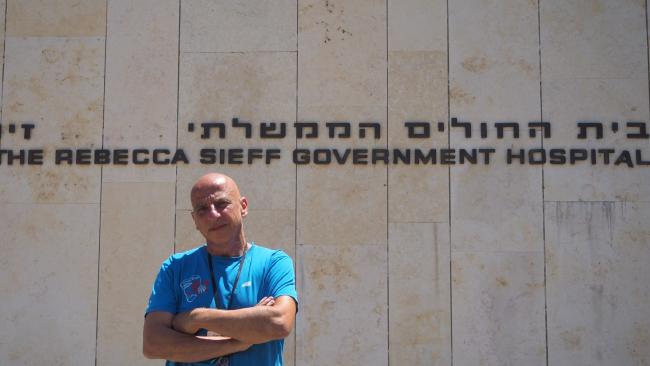A VETERAN of busy hospital wards, of open wounds and grimacing faces, Dr Michael Harari should have seen it all.
But five years after shifting from Melbourne to a hospital in the northern reaches of Israel, he still struggles to process how humans can be so cruel.
At the Royal Children’s Hospital he had dealt with kids who had fallen from bikes or had been cut free from mangled car wrecks.
But at The Rebecca Sieff Government Hospital, near the Golan Heights, he has shared the pain and sorrow of children, soldiers and families torn apart by the ravages of a brutal civil war just across the border.
“I’m no stranger to severe trauma but if I try to analyse why this has been so much more difficult for me I think it’s seeing the human hand and the nature of the injuries, the deliberate inflictions, it’s very different from disease or car accidents,’’ Dr Harari said.
“You can’t see the intentional human hand in other forms of trauma. There is something even more grotesque about all of this which disturbs something very profound in me, in all of us, I suspect.
“I’m scared to sound that I am lapsing into cliches but it’s a very real phenomena, even for an old man like myself.’’
The 61-year-old left Australia to spend the last decade of his professional career working in his family’s ancestral home. It was a tree-change of sorts, a move to a quieter hospital. At least it should have been.
Everything changed for this doctor and the medical staff around him on February 16, 2013.
Read the article by Aaron Langmaid in the Herald Sun.

